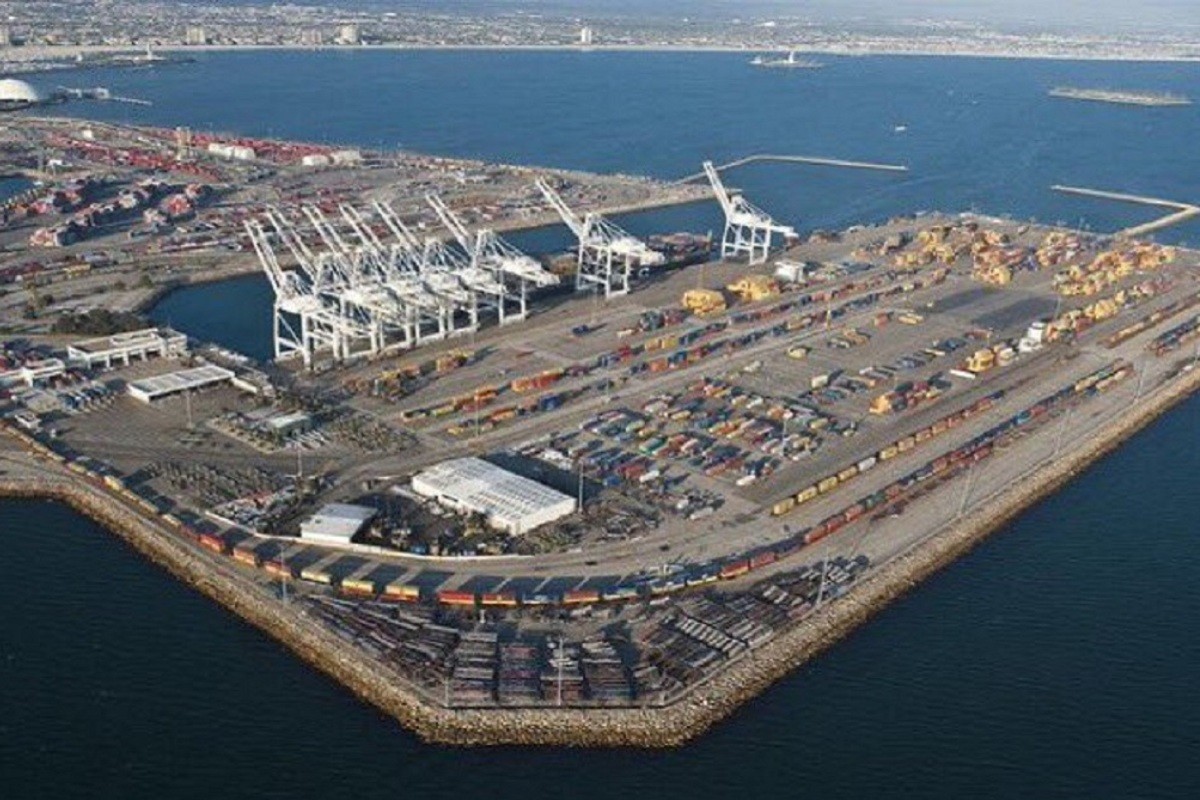Problems With Pakistan Push Afghanistan To Iran’s Chabahar Port

Perennial border issues with Pakistan, uneven bilateral ties and the latter’s troubled economy have driven Afghanistan’s Taliban rulers to Iran’s Chabahar port to gain better access to the sea, raising prospects of a substantial fall in the landlocked nation’s dependence on the Karachi port.
Mullah Abdul Ghani Baradar, the Deputy Prime Minister for Economic Affairs of the Taliban government, visited Iran in October and inspected the Iranian port of Chabahar.
Notably, the Chabahar transit issue gained priority over Pakistan’s current eviction of thousands of Afghan nationals when on November 14, Haji Nooruddin Azizi, Minister of Industry and Trade of the Taliban government, met Pakistan’s Caretaker Foreign Minister Jalil Abbas Jilani in Islamabad. The Afghan embassy in Islamabad said that “the meeting discussed bilateral trade, goods of Afghan traders in Karachi and issues related to Afghan refugees.”
Iran, on its part, has seized the opportunity Chabahar port provides amidst United States’ sanctions that have long impeded India’s completing the port-and-rail development and has agreed to connect the port via the Nimroz-Milk railway and the Zahedan railway. In September this year, Iranian President Ebrahim Raeisi issued necessary orders, Iran’s Mehr news outlet reported.
The Indian involvement lagged because Iran was insistent on having Khatam al-Anbiya constructions to handle the civil work. India’s objection has to do with the fact that the company belongs to Iran’s Islamic Revolutionary Guard Corps (IRGC) – one of the entities proscribed by the United States of America. These entities are part of the US’s secondary sanctions. Under the US sanctions, countries cannot work with a designated entity in Iran even if it is for certain development projects that enjoy waiver from the US scrutiny. The Chabahar port and the Chabahar-Zahedan rail link — a critical route to connect with Afghanistan bypassing Pakistan – have that waiver.
The new developments place Chabahar at the centre of a significant regional maritime movement even as Pakistan pushes the Chinese-built Gwadar port which is barely a hundred kilometres away. On a medium and long-term basis, the Afghanistan’s trade through Chabahar to Central Asia and Europe has the potential of denying Pakistan the logistic and economic advantage over Afghanistan.
This adds to its being denied its much-sought “strategic depth”, the reason why it hosted the Afghan Taliban for two decades. Back in power in Kabul, the Taliban have refused to play the ball with Pakistan and the bilateral relations remain tense.
Seeking to play down the chance that Chabahar could hurt its economic ties with Afghanistan, Pakistan says that the railway access via Iran could help only the eastern region of Afghanistan that has no railway network internally. Its dependence on the Karachi port would remain significant to provide access to the rest of Afghanistan via three Pakistani transit routes at Torkham, Chaman and Ghulam Khan.
However, the transit for Afghan goods has been dogged by the Karachi port being clogged by 3,000 Afghanistan-bound containers thanks to Pakistan’s serious foreign exchange shortage. Afghan businessman Khan Jan Alkozi, the leader of the Pakistan-Afghanistan Joint Chamber of Commerce, has been constantly raising his voice regarding the obstacles faced by the struck containers at Karachi Port, a Voice of America (VOA) report said.
The VOA also quotes Vakilur Rahman, who studies the Pak-Afghan border trade that the smuggling of goods via Iran and Afghanistan hurts the Pak economy. Frequent border tensions have also caused trucks to be stranded, perishable goods like fruits and food rotting and hurting businesses on both sides of the border.
Pak-Afghan trade, conducted under an agreement signed in 1965 has suffered during political upheavals and conflicts involving foreign powers. Successive governments in Kabul have sought to ease the transit issue. Chabahar’s development is considered the key but has suffered due to Pak-Afghan and Pak-Iran troubles and American sanctions so far as India’s part is considered in the development of the port and the railway line from Delaram to Zaranj. After the project was completed surmounting numerous problems, Japan showed interest in investment. But the US sanctions and trouble across the region have slowed any such move.
Chbahar has evinced deep interest in the region. Anadolu, a Turkish news agency summed it up (November 9, 2023) thus: “Connecting to Chabahar port will grant Afghanistan access to markets in Europe, Middle East, India, and China. Chabahar port enables Afghanistan to connect to international markets with lower time and cost.” (Ends)






